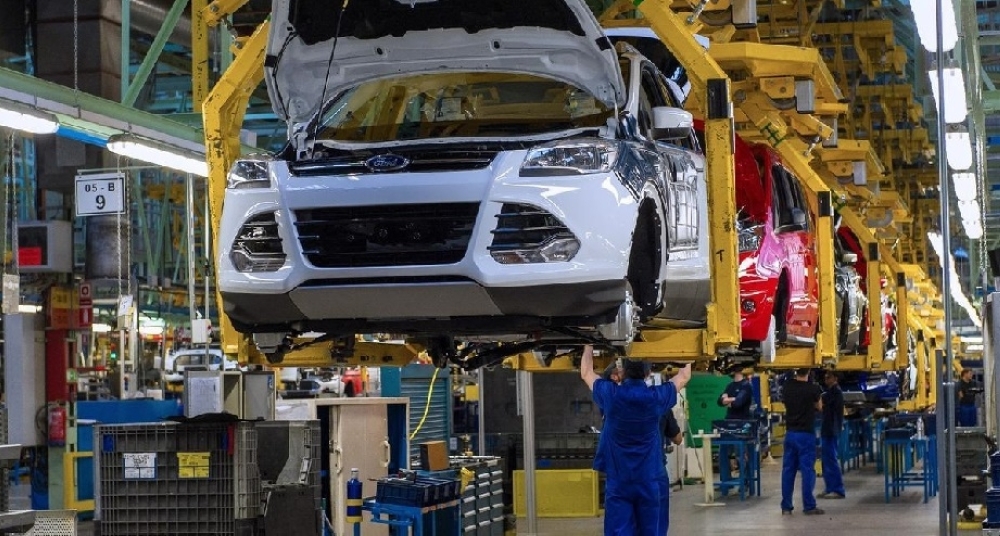

A plunge in automakers hit Asian and European equities on Thursday after Donald Trump announced painful tariffs on all imported vehicles and parts as he presses hardball trade policies many fear will spark a recession.
Indications that levies lined up for the president's "Liberation Day" on April 2 would be less severe than feared had given investors a little hope and helped markets chalk up much-needed gains.
However, the White House's habit of alternating between tough talk and leniency has fanned uncertainty and the latest announcement did little to soothe nerves. "What we're going to be doing is a 25 percent tariff on all cars that are not made in the United States," Trump said as he signed an order in the Oval Office.
The move takes effect at 12:01 am Eastern time (0400 GMT) on April 3 and affects foreign-made cars and light trucks.
Key automobile parts will also be hit within the month. About half of the cars sold in the United States are made within the country.
Of the imported vehicles, about half come from Mexico and Canada, with Japan, South Korea and Germany also major suppliers. Japan's government called the tariffs "extremely regrettable", while Canadian Prime Minister Mark Carney called it a "direct attack" on his country's workers.
And French Finance Minister Eric Lombard warned on Thursday: "The only solution for the European Union will be to raise tariffs on American products in response." There was little comfort in Trump's comments that reciprocal measures lined up for next week could be "very lenient".
The auto news hammered carmakers in Asia. In Tokyo, Toyota -- the world's top-selling carmaker -- fell two percent, Honda shed 2.5 percent while Nissan was off 1.7 percent, while Mazda dived six percent.
Seoul-listed Hyundai gave up more than four percent. Among European auto firms, Paris-listed Renault lost nearly two percent, while in Frankfurt BMW, Volkswagen and Mercedes lost around four percent. In Mumbai, India's Tata Motors, which exports Jaguar Land Rovers to the United States, lost more than five percent.
US-listed car giants also tumbled with General Motors, Ford and Stellantis all deep in the red in after-hours trade.
The retreat in the auto sector hit broader markets, which were already shaky owing to worries over Trump's trade agenda. Tokyo, Sydney, Seoul, Wellington, Taipei, Bangkok and Manila all fell. London opened on the back foot along with Paris and Frankfurt.
"Within the Asia-Pacific region, the car levies will hit Japan and South Korea the hardest," said Stefan Angrick and Dave Chia at Moody's Analytics.
"About six percent of Japan's total exports are cars shipped to the US. In South Korea's case, it's four percent. Such a sizeable tariff hike will undermine confidence, hit production and reduce orders." Hong Kong and Shanghai eked out gains along with Singapore and Mumbai.
Traders were given some cheer after Trump told reporters that he might offer to reduce tariffs on China to get Beijing's approval for the sale of popular social media platform TikTok.
Trump said this month Washington was in talks with four groups interested in buying TikTok, which has been in limbo after a US law ordered it to divest from its Chinese owner ByteDance or be banned in the country owing to national security concerns.
Oman Observer is now on the WhatsApp channel. Click here



